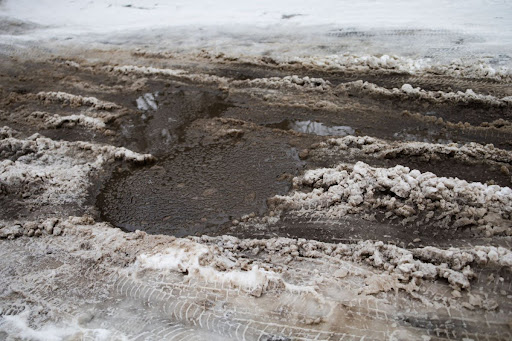- Unmasking Alligator Cracking: The Hidden Enemy of Asphalt Pavement
- Are Asphalt and Sealcoating Environmentally Friendly?
- Should I Repair My Potholes in Spring?
- 5 Important Questions You Should Ask Your Seal Coating Company
- How Does Snow Cause Potholes on Asphalt Roads?
- How Can Driveway Paving Add Value to Your Home?
- How Does Sealcoating Protect Driveways From Damage?
How Does Snow Cause Potholes on Asphalt Roads?

As winter approaches, many people know to expect their drives to work to become a bit more uncomfortable. Unfortunately, potholes form for various reasons, one of them being those white flakes that look so good coming down but can cause serious disruptions to our everyday lives. A severe snowstorm almost always results in messy roadways, but why is it that asphalt suffers so much from cracks and potholes? Is there anything that homeowners, business owners, or municipalities can do about it? We have all the answers you need right here!
The Impact of Freeze-Thaw Cycles
The freeze-thaw cycle is one of the most significant causes of damage to asphalt pavements. When freezing mornings meet warmer afternoons, it can leave surface water in a state of flux. When water freezes and cools, the sub-surface of the road constantly expands and contracts. This will eventually wear away at the structural integrity of the asphalt and lead to potholes. Additionally, when the weather reaches its freezing point, water that seeped into small cracks in your asphalt expands and shifts the underlayer around it. Finally, when the ice melts, the weight of cars and trucks loosens and rips out the pavement.
How Salt Plays a Part
Salt is obviously vitally important, as it keeps ice from developing, ensures smooth driveways and parking lots, and keeps people safe. But salt can also play a role in the development of potholes. When we place salt down, it lowers the freezing point of water. As a result, during extreme temperature fluctuations in the most intense cold weather, the asphalt will experience an unnatural freeze-thaw cycle, leading to further damage.
Snowplows Move Snow, and the Pavement
Snowplows do a great job at keeping our roads clean, even if they can sometimes throw snow back onto your car after hours shoveling it free. But, the weight of these trucks and the friction between the ground and the plows can cause asphalt to lift away and break up. This is especially common in weaker areas, and while many places adjust the height of plows to account for this difference, the blade can sometimes still be set too low. Additionally, fluctuating road heights might cause certain elevated roads to receive more damage than their flatter counterparts.
How Do We Keep Roads Smooth?
We can’t just stop using salt or snowplows, especially not when major storms hit. So how do we keep roads smooth when heavy snow leaves our tires at a higher risk of blowing? Ensuring roads are smooth can be done by either protecting roadways or repairing them when they receive damage. Proper asphalt repair and sealing can be performed by local professionals that take pride in keeping commuter cars safe and roads smooth for years to come.
Superior Seal Coating Has the Answers You Need
While potholes in the winter aren’t something we can completely get rid of, we certainly can protect against their growth. At Superior Seal Coating, our residential and commercial seal coating services give you the best shot at keeping asphalt roads safe and protected. With our coatings, you can keep visitors and road users safe throughout the harsh winter weather each year. Contact us today and stay a step ahead of potholes with a high-quality seal coating.